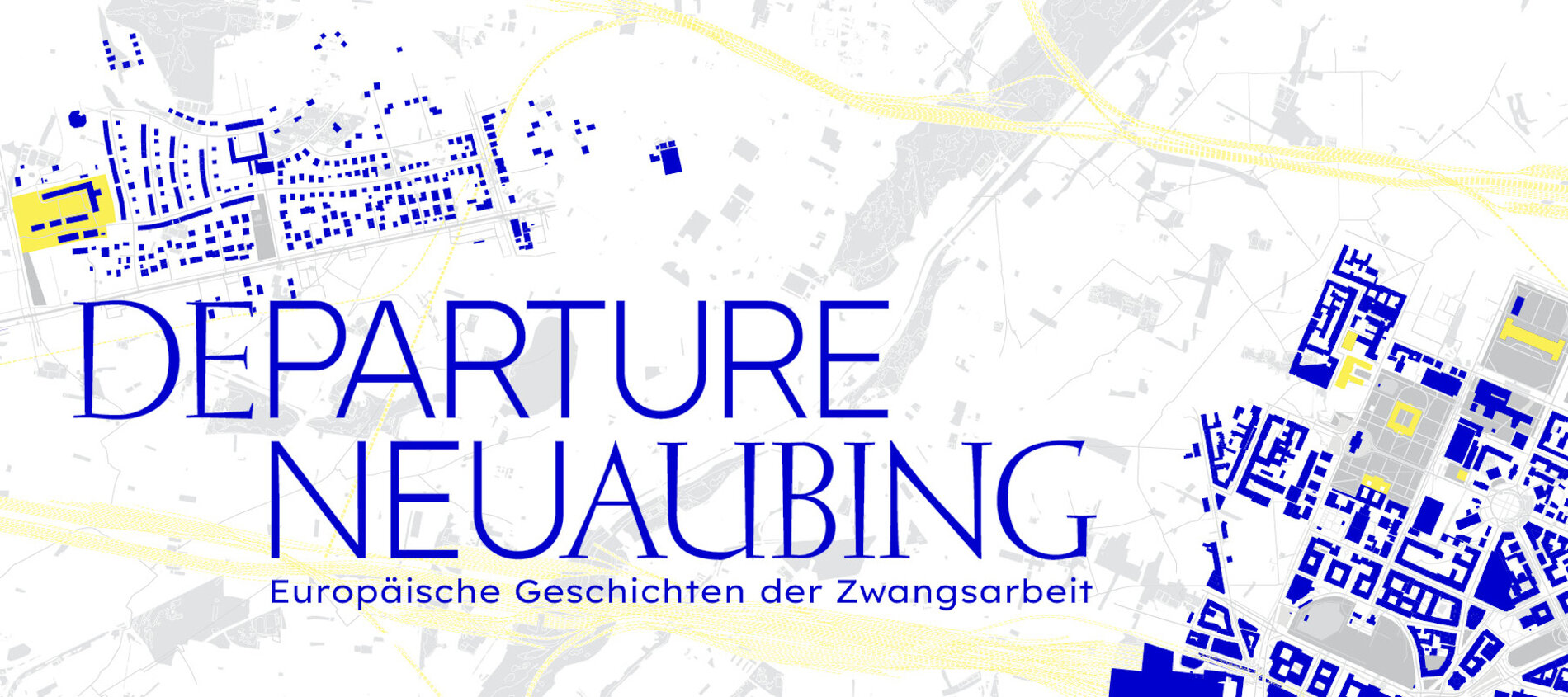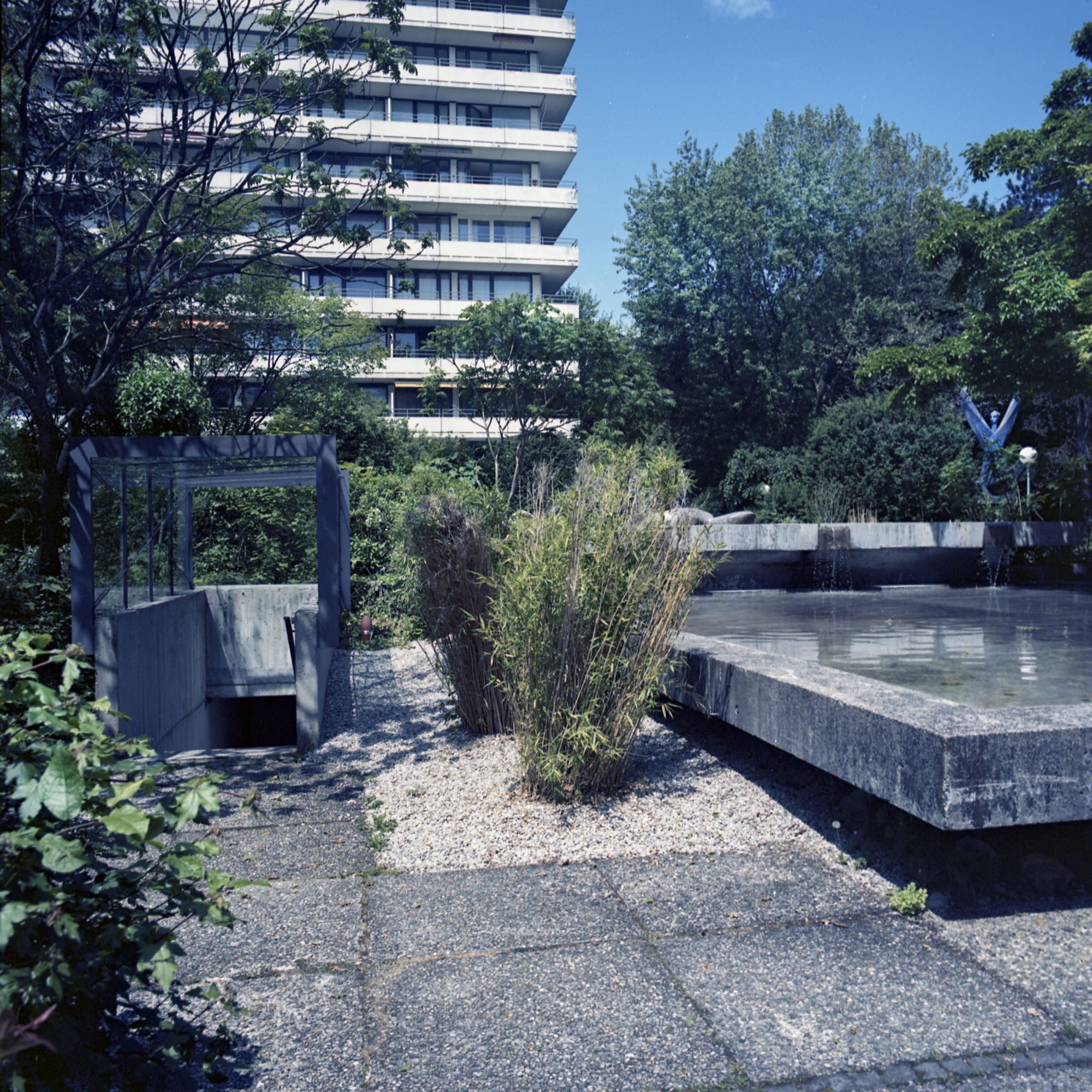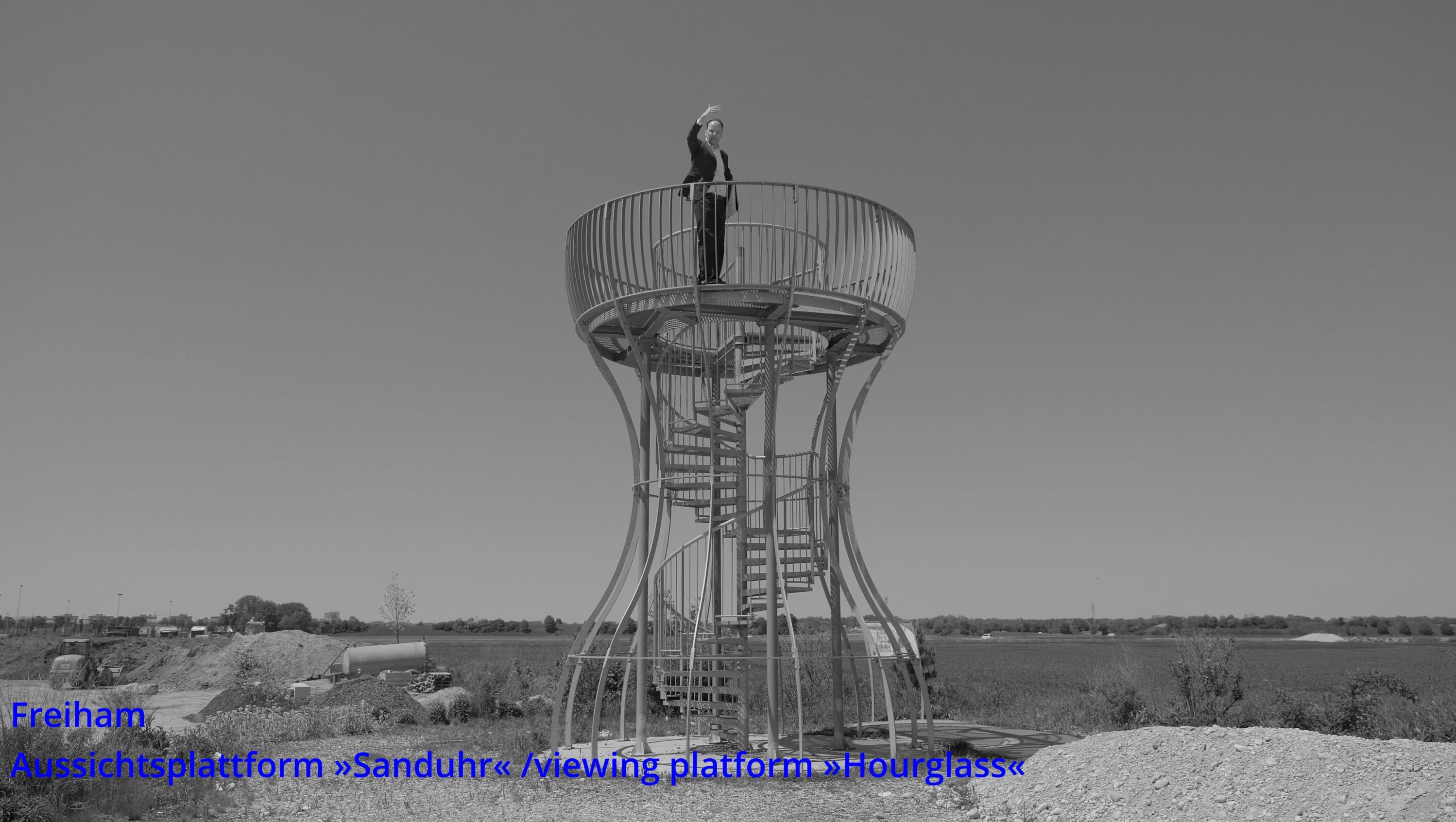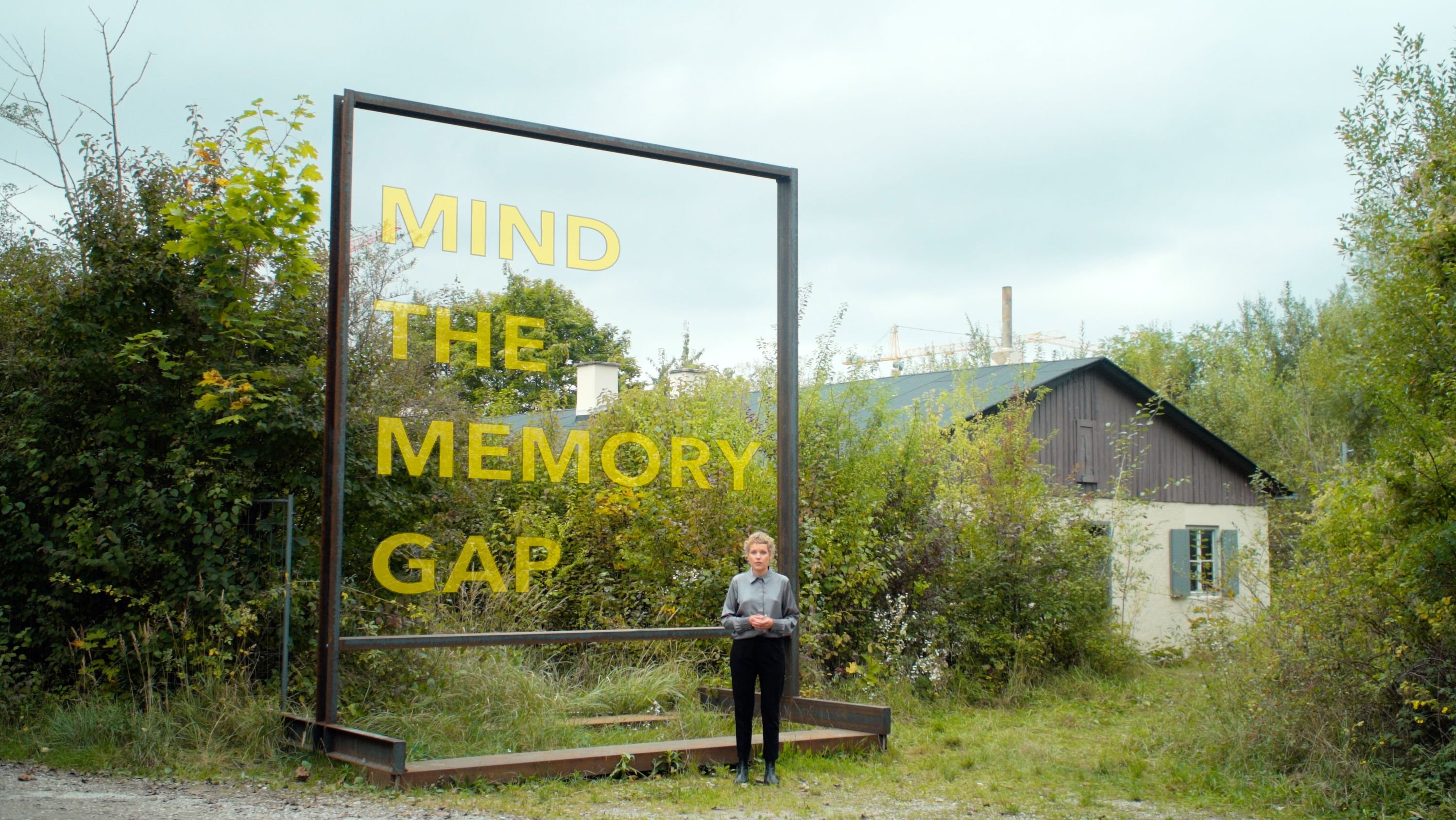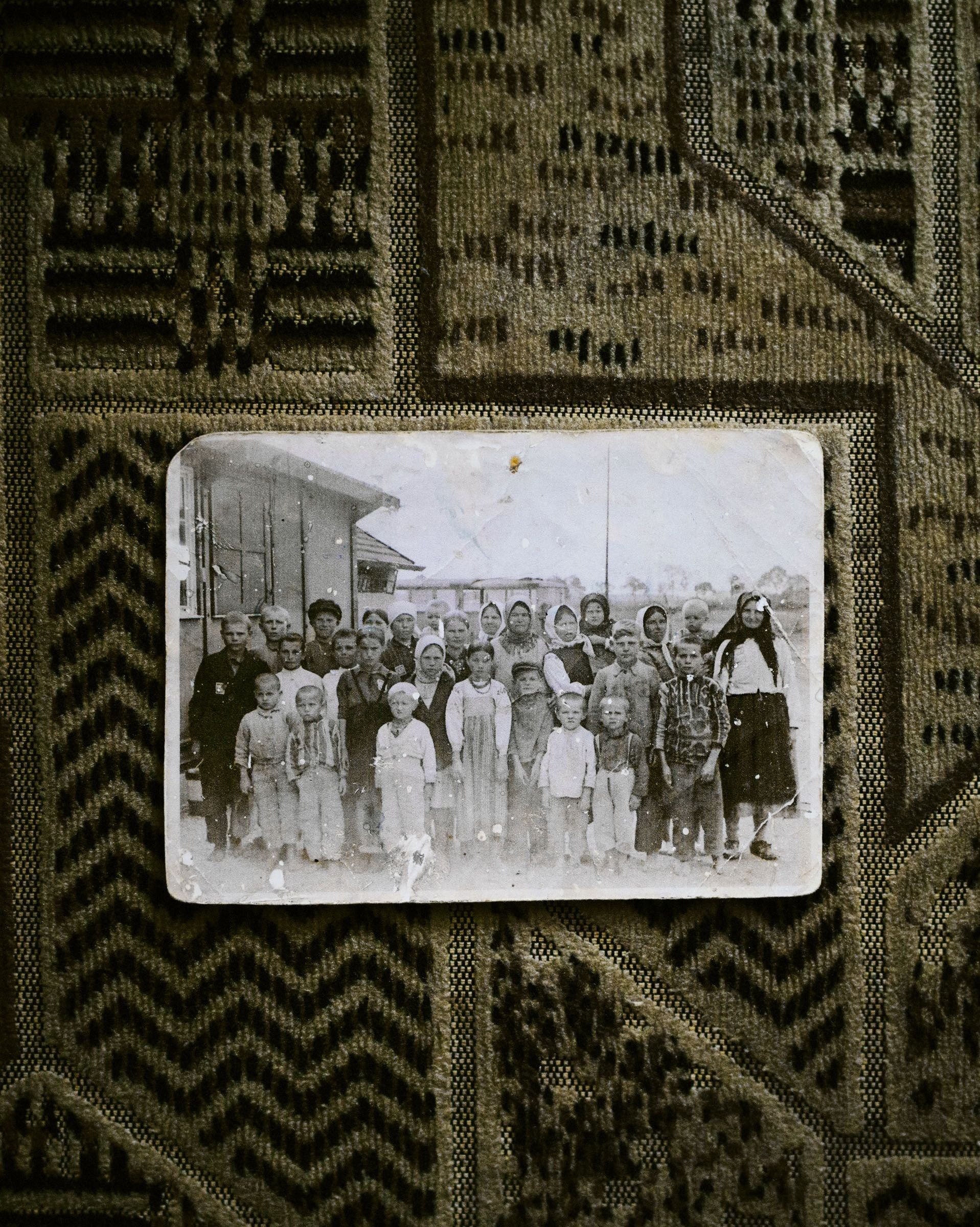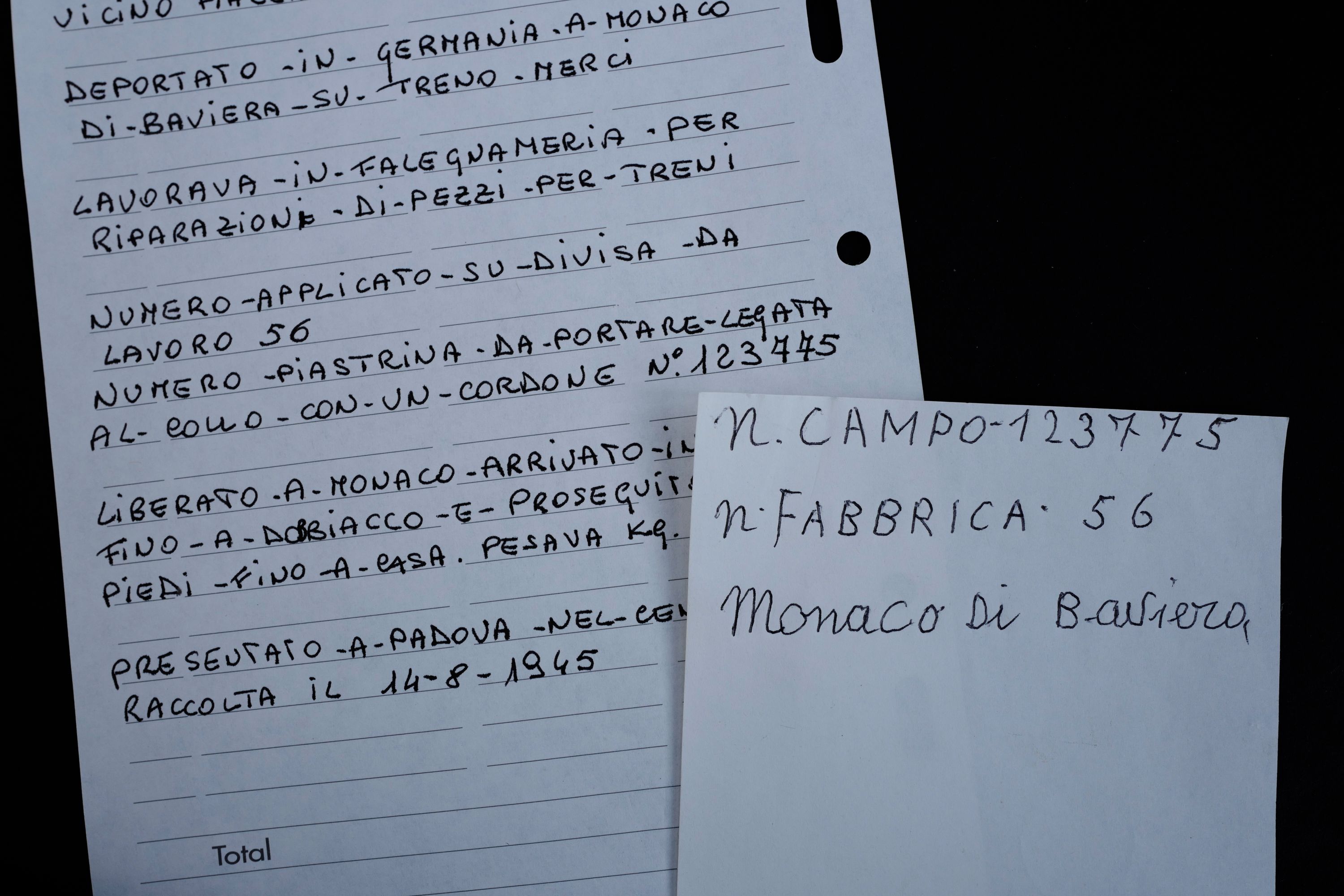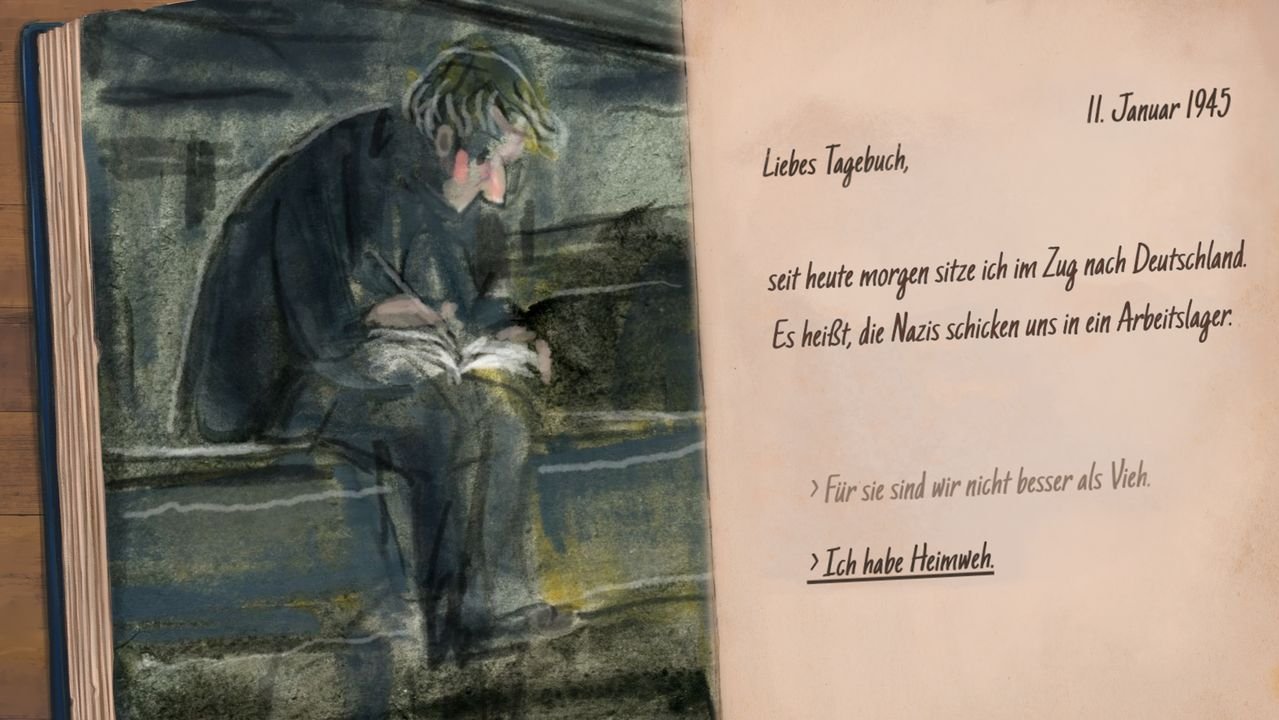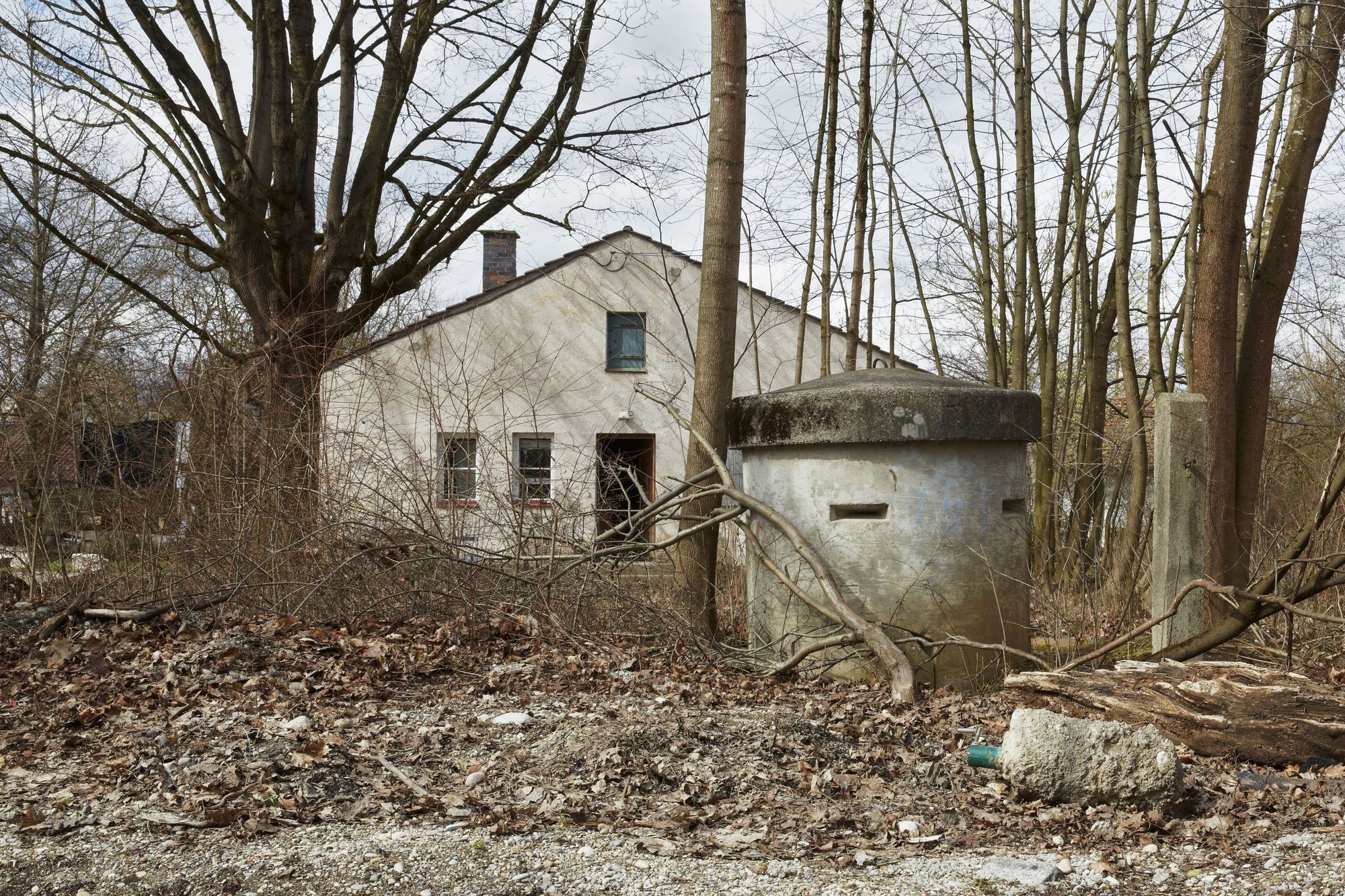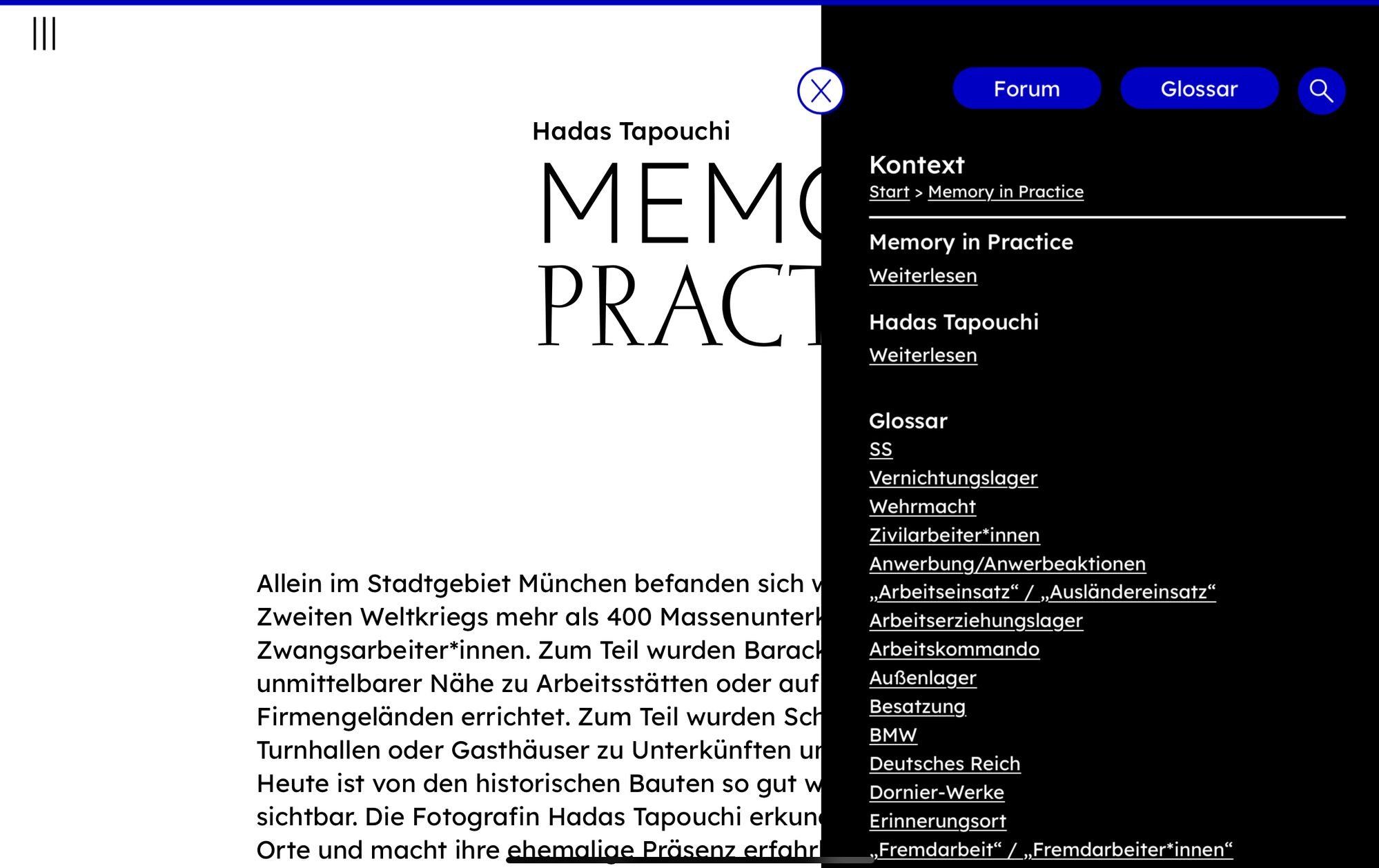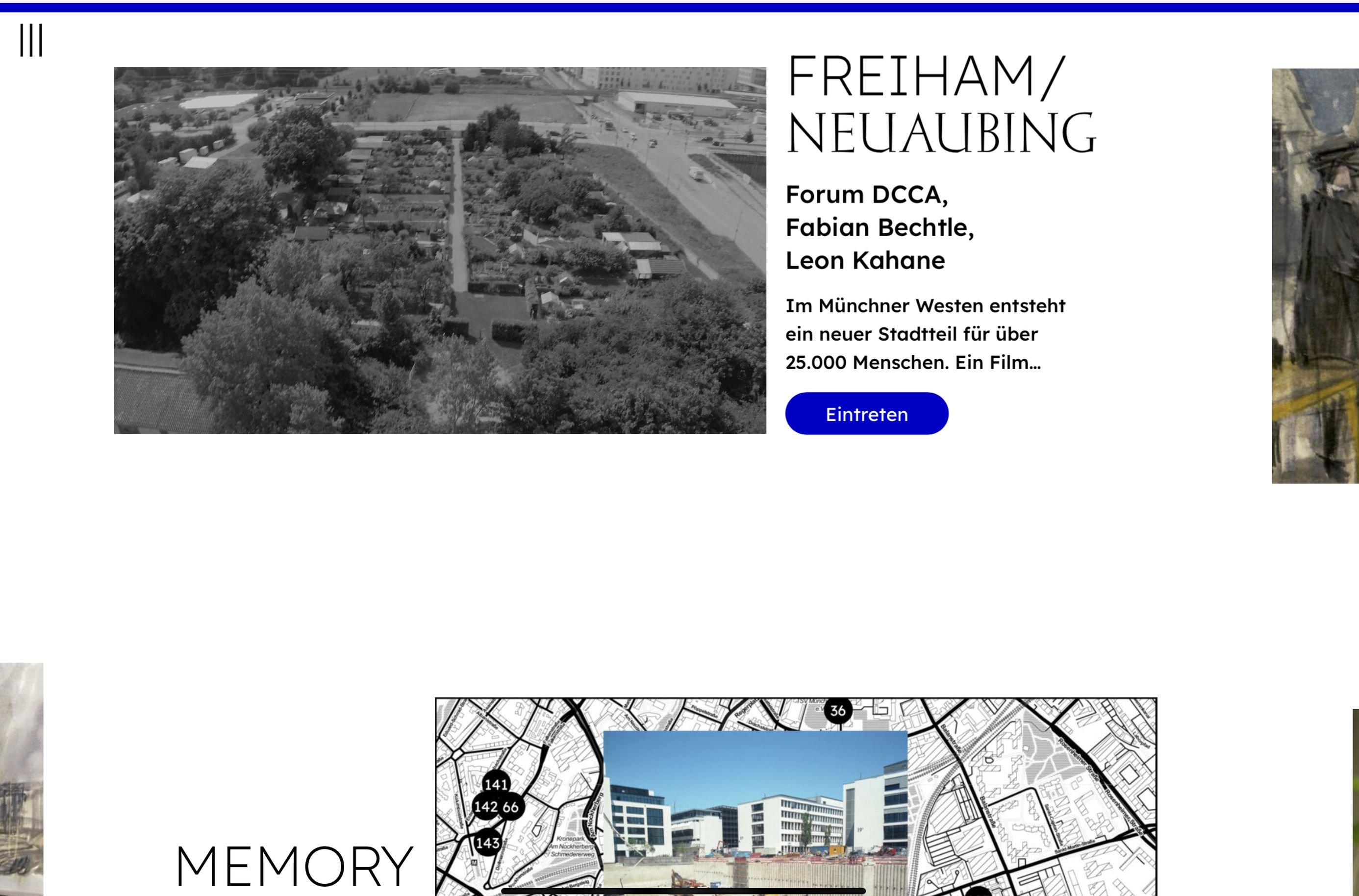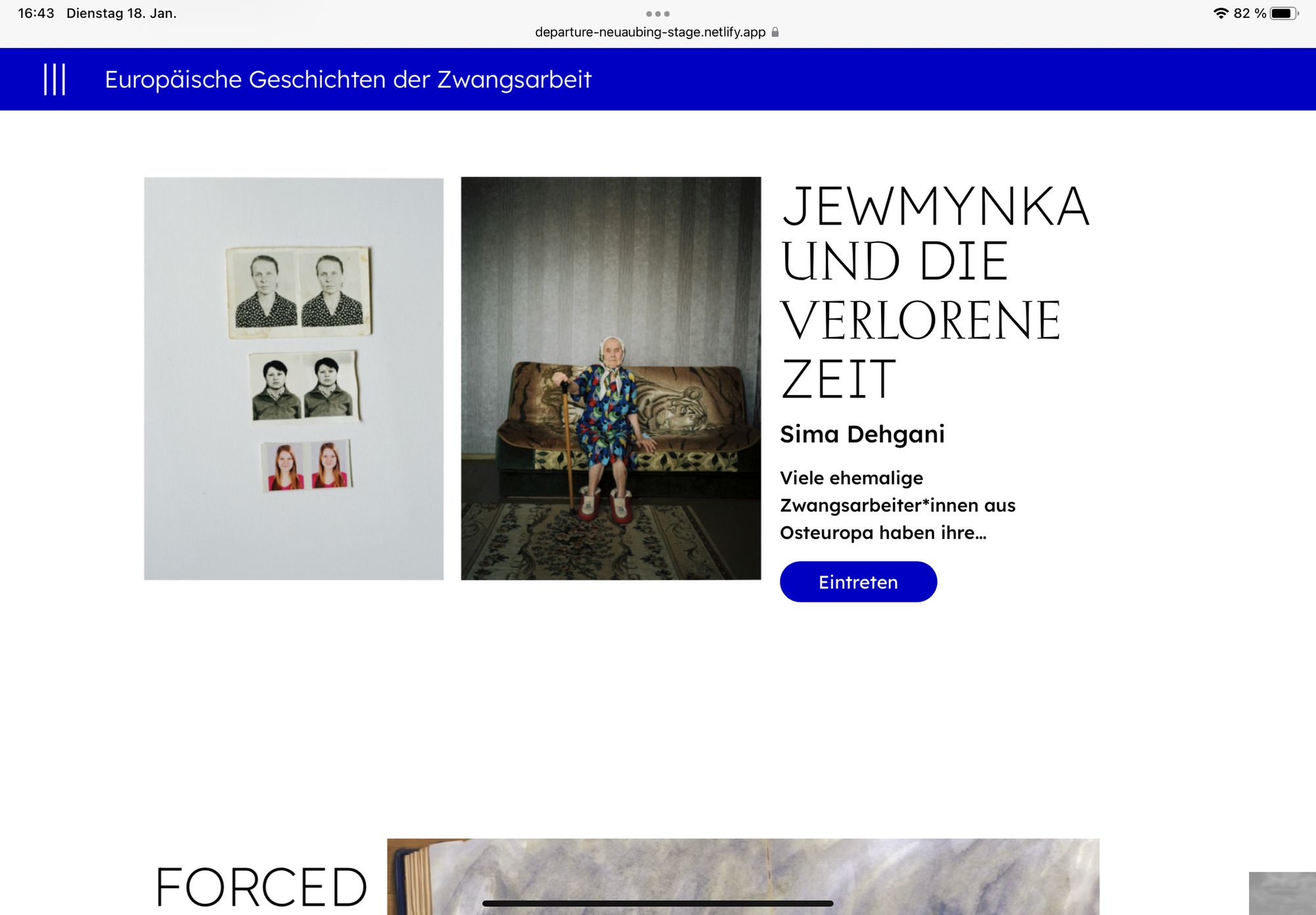Hadas Tapouchi: Memory in Practice
During World War II there were more than 400 mass accommodation sites for forced laborers in the Munich area alone. Some of the laborers were housed in barracks built directly adjacent to their places of work or on company premises; others in repurposed schools, gymnasiums, or guesthouses. Today there is almost nothing to be seen of these many historic buildings. Departure Neuaubing uses an interactive map to bring places where people were persecuted and exploited back into the city’s collective memory.
For Memory in Practice the artist Hadas Tapouchi explored thirty of these sites. Her photos make their former presence in the urban landscape tangible. The interactive map of the city follows up on her approach by inviting users themselves to document changes in urban space and to share their findings with others. A connection is thus forged between physical historical locations and a digital memory space.
Hadas Tapouchi (b. 1981) uses photography and film to examine historical connections and their social transformation processes. She lives and works in Berlin.
Forum DCCA: Fabian Bechtle & Leon Kahane: FREIHAM/NEUAUBING
Until a few years ago the site of the former camp of the Reichsbahn in Neuaubing marked the Munich city limits. The new district of Freiham currently under development will expand the urban space and map out ideas about how communities of the future might look. This has prompted a renewed focus on the historical significance of the adjacent neighborhoods: the former forced labor camp of the Reichsbahn built in 1942, and the Dornier-Siedlung, dating from 1938, which offered accommodation to the German workforce of the Dornier-Werke in Neuaubing. In their film Fabian Bechtle and Leon Kahane explore the relationships between history and present-day life on Munich’s western periphery together with the district manager of the new development in Freiham, Daniel Genée.
The Forum Democratic Culture and Contemporary Art (Forum DCCA) is a venue for artistic cultural criticism. It engages in research and publications, stages public events, and produces artistic contributions. The Forum was founded by Fabian Bechtle (b.1980) and Leon Kahane (b. 1985). Both artists live and work in Berlin.
Franz Wanner: Mind the Memory Gap
In his multi-part work Mind the Memory Gap Franz Wanner contrasts two places—Neuaubing and Ottobrunn—both connected with the Nazi armaments industry. While at one of them the Nazi past has long since been forgotten and will now become the location of a memorial site, at the other this history is being suppressed. In Mind the Memory Gap, one of two films , Wanner stages a fictitious guided tour in which history is employed as a marketing strategy. Attention is focused on certain aspects while others are left out. Alongside the films and text, Wanner uses an interactive tool to encourage discussion of specific terms, reflecting on the role of language as a vehicle for ideas of reality. Users can participate actively in this discussion.
Franz Wanner’s (b. 1975) installations and productions examine complexes such as the German arms industry and the after-effects of the Nazi era in society today. He lives and works in Munich.
Sima Dehgani: Yevmynka and Lost Time
In her photographic approach Sima Dehgani traces the history of the Ukrainian village of Yevmynka. In 1943 almost all the village’s inhabitants were deported, many to Munich and some to Neuaubing. Most of them returned after the war ended, but their lives were never the same again. The photographer documents the stories and memories of these contemporary witnesses and their families as well as the realities of their lives today. Objects and photos play a special role in the family memory, since they stand for certain experiences that are not spoken about. Dehgani’s photo series conveys the fact that memories can be preserved in many different forms and objects can trigger stories.
Sima Dehgani (b. 1985) is a freelance photographer. The main starting point for her own photographic practice is her experience of bicultural identity. She lives and works in Munich.
Alex Rühle: Munich, Monaco, Malgolo – and Back
The story of the Italian military internees has largely been forgotten today, and they never received any financial compensation. In fall 2021 the journalist Alex Rühle, the historian Paul-Moritz Rabe, and the photographer Alessandra Schellnegger traveled to Northern Italy in search of memories of the former members of the Italian military who had to perform forced labor in Munich as prisoners of war during World War II. They met sons and daughters of the laborers who told them of trauma, loss, and forgetting, but also of an unintentional new start and a dessert that had a very special role to play.
Alex Rühle (b. 1969) reports on culture for the arts section of the Süddeutsche Zeitung and also writes books. He lives and works in Munich.
Paintbucket Games: Forced Abroad: Days of a Forced Laborer
On the basis of a journal kept by a Dutch former forced laborer, the game designers at Paintbucket Games have developed the first ever game on the subject of Nazi forced labor in a cooperation with the Munich Documentation Centre. The visual novel Forced Abroad illustrates what his time as a forced laborer in Neuaubing meant for the nineteen-year-old Dutchman Jan Bazuin. Users can themselves decide in what direction the game should go and, in the process, learn something about the course of history and the scope an individual has for action. To help understand this complex story, background information can be assembled in a memory album. The game is illustrated by the cartoon artist Barbara Yelin. The book Jan Bazuin. Tagebuch eines Zwangsarbeiters will be published in February 2022 by C.H. Beck.
The independent studio Paintbucket Games was founded in 2018 by Jörg Friedrich and Sebastian St. Schulz. The aim of the studio is to develop video games featuring current socio-political issues with strong narratives. They became known through the game Through the Darkest of Times, which has won many prizes.
Departure Neuaubing relates the history of forced labor to the present in a variety of ways and invites users to participate. The web app uses a broad spectrum of media and communicative formats to make the material accessible to as broad a group of users as possible, taking account of varying degrees of prior knowledge and differing online media habits. It draws on current practices established in social networks such as storytelling, mediatization, and media convergence, which condition people’s everyday media experience, especially that of young people. The material enables users to engage actively with the subjects of labor and exploitation and can be accessed both locally and globally under www.departure-neuaubing.nsdoku.de.
In the future the project will be supplemented with workshops and communicative formats staged locally . In this way the digital will reflect back on the analogue. Information and content will be compiled collectively and integrated into the development of the new memorial site in Neuaubing. There, at Ehrenbürgstraße 9, large parts of the former Nazi forced labor camp still exist and have evidently been used for multiple purposes in the meantime. A public memorial site featuring exhibitions and an outreach program will be created in two of the eight surviving barracks.


